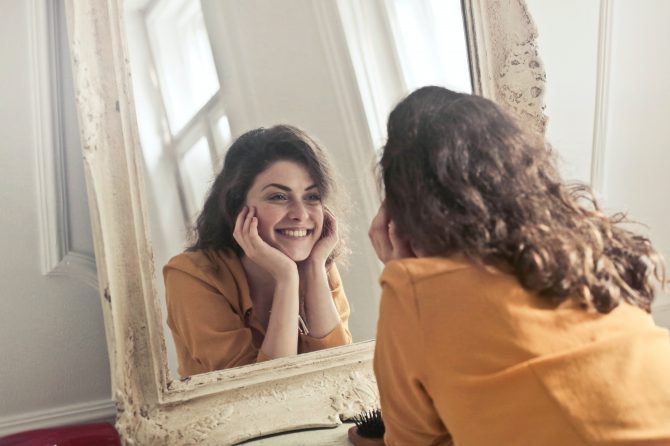
How happy are people with the way they look?
A new study found that this number is higher than you might think
In the United Kingdom, a large survey study found that 42% of the British public feel insecure with the way they look. Women reported more insecurities than men with 49% of women signifying insecurity in their appearance compared to 34% of men. These numbers are nearly double those from just a decade. Why are more people dissatisfied with their appearance than ever? Social science research has identified social media and the recent increase in video conferencing as key drivers. These appearance-focused endeavors may be cumulatively leading to a negative impact on self-esteem.
Social media provides users the opportunity to present the best versions of themselves to the public. The notion of the social media “influencer” has prompted a strong pressure for people to focus on their appearance as they use their respective social media platforms to “influence” others to adopt a specific look or behavior. Snapchat and Instagram are believed to be at the core of this phenomenon. These applications provide users the opportunity to emulate “influencers” through “beautifying filters” that can alter the user’s facial anatomy, whiten teeth, and change skin texture and tone. The use of these filters unfortunately propagates an environment where the only images that many users deem worthy of posting are those that are put through a curated lens. This creation of an idealized “pseudo-self” image can lead to feelings of insecurity about one’s real-life appearance.
With the COVID-19 pandemic, video conferencing has become a primary form of communication for businesses and families, effectively placing a mirror in front of users’ during much of their work and personal time. Many people are finding that watching themselves in virtual social interactions has brought attention to imperfections in their facial appearance which were not previously as glaring. As a result, people are turning to a variety of appearance changing strategies for their calls such as changing their makeup, lighting or camera angle. Similar to the appearance focus of many social media applications, this extensive exposure to one’s own appearance via video conferencing can also contribute to feelings of insecurity.
The rising prevalence of social media and the paradigm shift occurring with video conferencing are both impacting self-esteem and self image. Over the years, researchers have demonstrated that self image is strongly linked to overall mental and physical health and life satisfaction. A national survey of 12,000 American adults done in 2016 highlights this association. In this study, satisfaction with appearance was the third strongest predictor of overall life satisfaction for women, trailing only to satisfaction with their financial situation and satisfaction with their romantic partner. Similarly for men, appearance satisfaction was the second strongest predictor of life satisfaction, only behind satisfaction with financial situation. Interestingly, this study also found that the more people engaged with social media the less satisfied they were with their appearance and weight.
Since the doors for elective surgeries have re-opened during the COVID pandemic, facial cosmetic surgeons have seen a dramatic increase in the demand for surgical and non-surgical interventions to enhance their appearance. Although some consider cosmetic surgery to be vain and materialistic, many others view these treatments as therapeutic. In an era of burgeoning self-doubt fueled by perfected social media photos and video conferencing, cosmetic facial treatments can potentially have a profound impact on a patient’s self-esteem and quality of life.
Leave a reply